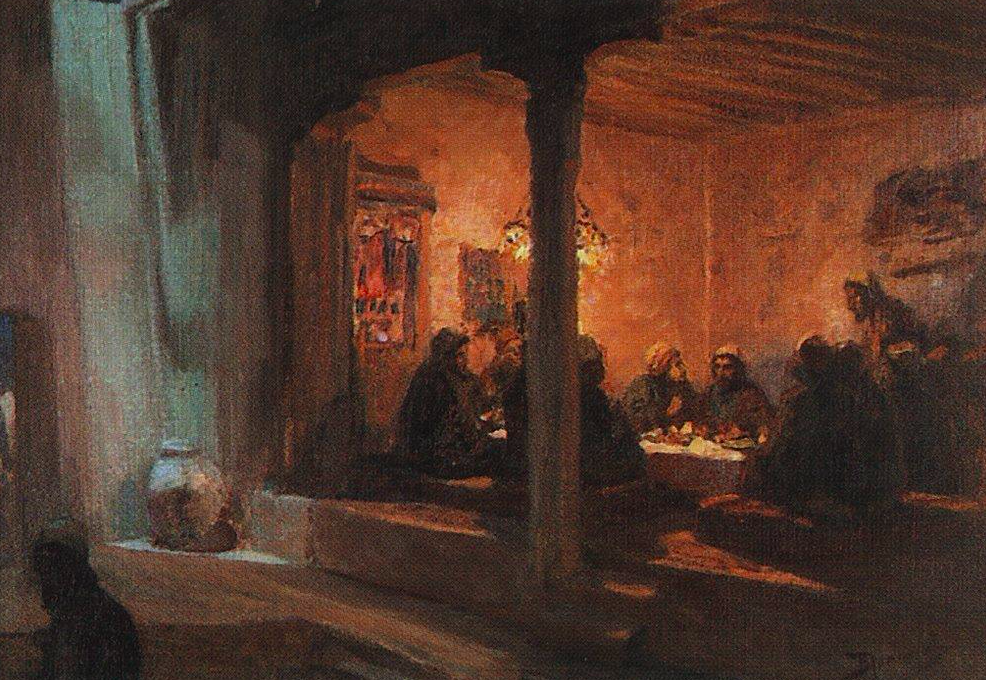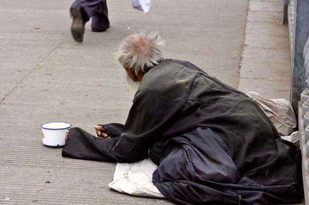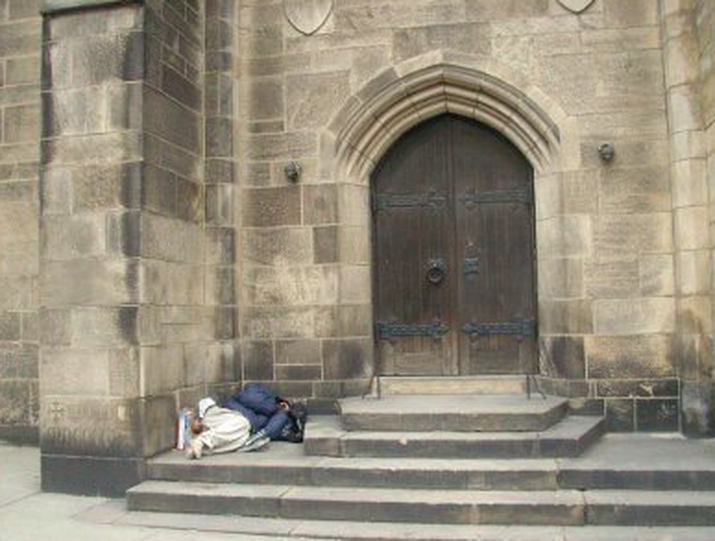|
Recently during a Sunday sermon on Matthew 11, I asked: “How do you think the young church, with nothing much to offer, no social or political power, possessing little resources—and life didn’t really get easier and better for early believers. They risked everything, and for most, life got harder. How do you think, in the first 150 years after Pentecost, Christianity became the largest religious sect in and around the Empire? How? “They changed their households . . . street by street, village by village, at the table [I pointed to our table where we would shortly celebrate the Lord’s Supper together]. It all changed right here where gathered-churches lived out ‘Come all who labor and are heavy laden.’ “The body of Christ, the local church, with Jesus our Head, ruling and reigning at the Father’s right hand, is His presence in its community. We show them Jesus by who we are and what we do so that all who struggle and toil and are carrying burdens no one should carry alone hear (because they see) the invitation to Come to Jesus and take on His yoke and find rest. We are to embody the invitation to Come.” ¿Como piensas que la iglesia naciente sin nada que ofrecer, sin poder, careciendo de recursos? - y la situación no se puso ni mas fácil ni mejor para estos primeros creyentes que se arriesgaron todo, sino la vida mayormente se les hizo aún más difícil - ¿Como piensas que dentro de 150 años el cristianismo llegó a ser la religión más prominente en y alrededor del imperio Romano?
¿Cómo? Ellos hicieron cambiar sus hogares ... calle por calle, aldea por aldea, en la mesa. Todo se cambió allí mero, donde las iglesia reunida practicaba el "Venid a mí, todos los que estáis cansados y cargados." El cuerpo de Cristo es la iglesia local, con Jesús como nuestra cabeza regiendo y reinando a la diestra del Padre, su presencia en esa comunidad. Les demostramos a Jesús por quienes somos y por lo que hacemos para que todo aquel que lucha y labora y que lleva carga pesada no lo haga a solas porque oye y ve la invitación de venir a Jesús y tomar su yugo y hallar descanso. Debemos encarnar la invitación a venir.
0 Comments
 There are so many grand and wonderful paintings of early church times of table fellowship. And some I really, truly like. Yet, there is a male-centerness to them that would not have reflected the actual tables of Christian fellowship of the early church that these scenes are to depict. I do not see women and wives and slaves and children; typically just men, and when women are depicted, they are serving food. Most of these grand paintings were created and come at the time after Constantine, the Roman Empire Caesar (272 AD - 337 AD), herded the churches away from the homes of Christians and into buildings sanctioned by the State, along with laws to build up and protect an appointed church authority and priesthood consisting solely of men. Church began to reflect the culture of the empire more so than the one painted by the Apostolic church and the early church through 300 AD. This move recreated church away from the Table fellowship of strangers and unequals that had increased and spread since the days after the Pentecost of Acts 2. Most of these wonderful paintings, as far as I can tell, come from the post-constantine Christian era, reading their “church experience” back into the apostolic and early church (form and experience). We do that, too, now. We start with how we do church now and read it back into the New Testament accounts and teaching--this anachronistic. Our vision of the church not only reflects the flaws and the unredeemed aspects of our social and cultural times (and trends), but we read this experience of church back into the life of the early church and, worse, back into the vision of the church depicted by our New Testament writers. We need to do better.  So many values and virtues, which came from the appearance and presence of Christianity in the world 2,000 plus years ago, in our culture, exist today as noble and ideals amongst society, so much so that the intent of Jesus’ Blesseds are now tempered, eased, toned down, dulled, softened. Their bite taken out. Their edge taken off—so that their radical, self-righteous slaying, Christendom destroying, idol bashing, social leveling, culture reversing power is missed and dismissed by much of the church and ignored as simplistic and assumed platitudes by modern crowds. The gospel is actually missed.
We exist at a time when the Cheshire cat smile of these Beatitudes exist (in vague social and cultural forms and weak values and virtues, and, even, as political correctness); but the cat (i.e., the intent Jesus had in the first place) is all gone. These verses, Matthew 5:3-12 (above), were the most oft quoted, referred to, and referenced New Testament texts in the first 150 years of the church. They were the call (invitation) to the faith, the test of faithfulness, and the bane and annoyance of existing powers. You want to know how Christianity spread so rapidly and the church increased beyond imagination in the first 150 years--they actually believed the Beatitudes. And, did them. The early believers, mostly poor and lacking resources, small and powerless and often hidden, lived the life the Beatitudes described, endured attacks against the message they implied, and, as a result, out-lived an empire. Our problem now, is we like the smile but care not the cat has disappeared. We've turned much of the Beatitudes 180° degrees from their original intent that they no longer slay us nor confront the culture (or the church) with all its social hierarchy and status, its vertical world. The Beatitudes are interpreted and used in ways so that the rich, famous, elite, the educated, the privileged and advantaged are comforted to think that they are, as well, “poor in spirit," so they get to keep their privilege and advantage (as long as they recognize their "spiritual poverty"). The privileged get to continue in the culture and social structures that gave them their advantage. Heck, theirs is the kingdom! Now and in the future. Who wouldn't want that deal? The Beatitudes are not a platform for your privilege, fame, celebrity, or power . . . they are to disturb everything that made you, that enabled you to have social status, to destroy every advantage you have had to enjoy the privileges you have . . . the Beatitudes level, they turn (for those who believe the kingdom of heaven has come) the verticalization of this social and cultural world (with all its advantages) and horizontalizes everything. If the Beatitudes don't do this to you, then you are seeing just the Cheshire cat smile. The cat is gone.  How do the rich, affluent, powerful, and wealthy break and destroy the idols that blind them and make them deaf? They accept the invitation to a kingdom, the kingdom of heaven, where the poor in spirit (the actual poor among them, the outcasts, marginal, uneducated, the sick, infirmed, and afflicted, and mentally unstable; cf. Matthew 4:24-5:1); where those who mourn for lack of recourses; and, where the meek, that is the powerless, have the kingdom, will be comforted, and shall inherit the earth. This is the kingdom to which the affluent, wealthy, and the advantaged, that is the powerful and resource-rich are invited. Of course, these lines in the list of Beatitudes are for all who seek first God’s kingdom and his righteousness. I am here focused on the powerful and resource-rich who hear this gracious invitation to the kingdom of Heaven. This is the kingdom to which the powerful and resource-rich are invited, a kingdom where they thirst and hunger for justice [yes, that’s exactly how I believe Jesus meant it]; where they will extend mercy because it is the merciful that will receive mercy; where the clean in heart make room for the unclean, because they see God; where they will be peace-makers, because they will be called Sons of God. This is an impossible invitation: for those who have been made blind and deaf and immovable because of their idols, these need the gospel, the power of God unto salvation. This is why Jesus died on that cross. This is the way in which God changed the world—really, the way in which he brought into existence, the reality of his recreated world, his kingdom of heaven. Yet, still, these words of the Beatitude are an invitation, waiting for you, through the gospel of Jesus Christ, to accept. In the end, both at our death and at the end of time, this is the kingdom that matters, the only kingdom that will remain. It is the kingdom of heaven to whom God, the Most High, will give to his saints (Daniel 7:18). This is why it makes sense that “the poor in spirit” are blessed, “because theirs is this kingdom.”
|
AuthorChip M. Anderson, advocate for biblical social action; pastor of an urban church plant in the Hill neighborhood of New Haven, CT; husband, father, author, former Greek & NT professor; and, 19 years involved with social action. Archives
February 2024
Categories
All
|
Pages |
More Pages |
|


 RSS Feed
RSS Feed